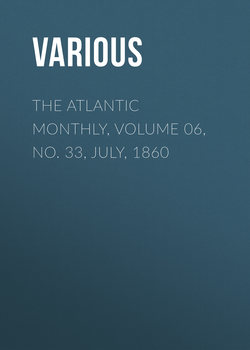Читать книгу The Atlantic Monthly, Volume 06, No. 33, July, 1860 - Various - Страница 3
A LEGEND OF MARYLAND
"AN OWRE TRUE TALE."
ОглавлениеThe framework of modern history is, for the most part, constructed out of the material supplied by national transactions described in official documents and contemporaneous records. Forms of government and their organic changes, the succession of those who have administered them, their legislation, wars, treaties, and the statistics demonstrating their growth or decline,–these are the elements that furnish the outlines of history. They are the dry timbers of a vast old edifice; they impose a dry study upon the antiquary, and are still more dry to his reader.
But that which makes history the richest of philosophies and the most genial pursuit of humanity is the spirit that is breathed into it by the thoughts and feelings of former generations, interpreted in actions and incidents that disclose the passions, motives, and ambition of men, and open to us a view of the actual life of our forefathers. When we can contemplate the people of a past age employed in their own occupations, observe their habits and manners, comprehend their policy and their methods of pursuing it, our imagination is quick to clothe them with the flesh and blood of human brotherhood and to bring them into full sympathy with our individual nature.
History then becomes a world of living figures,–a theatre that presents to us a majestic drama, varied by alternate scenes of the grandest achievements and the most touching episodes of human existence.
In the composing of this drama the author has need to seek his material in many a tangled thicket as well as in many an open field. Facts accidentally encountered, which singly have but little perceptible significance, are sometimes strangely discovered to illustrate incidents long obscured and incapable of explanation. They are like the lost links of a chain, which, being found, supply the means of giving cohesion and completeness to the heretofore useless fragments. The scholar's experience is full of these reunions of illustrative incidents gathered from regions far apart in space, and often in time. The historian's skill is challenged to its highest task in the effort to draw together those tissues of personal and local adventure which, at first without seeming or suspected dependence, prove, when brought into their proper relationship with each other, to be unerring exponents of events of highest concern.
It is pleasant to fall upon the course of one of these currents of adventure,– to follow a solitary rivulet of tradition, such as by chance we now and then find modestly flowing along through the obscure coverts of time, and to be able to trace its progress to the confluence of other streams,–and finally to see it grow, by the aid of these tributaries, to the proportions of an ample river, which waters the domain of authentic history and bears upon its bosom a clear testimony to the life and character of a people.
The following legend furnishes a striking and attractive exemplification of such a growth, in the unfolding of a romantic passage of Maryland history, of which no annalist has ever given more than an ambiguous and meagre hint. It refers to a deed of bloodshed, of which the only trace that was not obliterated from living rumor so long as a century ago was to be found in a vague and misty relic of an old memory of the provincial period of the State. The facts by which I have been enabled to bring it to the full light of an historical incident, it will be seen in the perusal of this narrative, have successively, and by most curious process of development, risen into view through a series of accidental discoveries, which have all combined, with singular coincidence and adaptation, to furnish an unquestionable chapter of Maryland history, altogether worthy of recital for its intrinsic interest, and still more worthy of preservation for the elements it supplies towards a correct estimate of the troubles which beset the career and formed the character and manners of the forefathers of the State.
